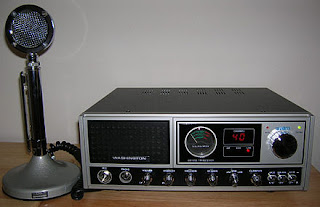Ten years ago, Mari Kuraishi and I launched the first-ever Innovation Marketplace at the World Bank. The idea was that any team of staff, without regard to rank or title, could submit an idea for doing good, and that we would award $3 milion to the most promising ideas. There were few rules and little bureaucracy: in fact, proposals were limited to a couple of pages.
In May 1998, 121 teams set up booths in the atrium of the World Bank, and they each got fifteen minutes to pitch their ideas to a roving jury panel, which announced its decision within a couple of days. The quality of the ideas was exceptional, and about half of the ideas funded (including the development of an aids vaccine and an initiative to help countries better prepare for natural disasters) became major strategic initiative for the Bank over the next 18 months. This method of sourcing ideas helped the real innovators leap-frog the usual bureacracy.
But what struck me most was an encounter I had at the end of the Innovation Marketplace. I saw a fairly senior and respected Bank economist crying. I asked him what was wrong and he told me that his idea was something he had been tossing around for years - but he could never get anyone to listen to it until that day. He had not won any funding, but at least he had been heard, and in fact he had met someone else with a similar idea, and they were going to go work on it together.
So Mari and I thought: "Imagine: If it was so hard for a World Bank economist to have his ideas heard, what does that say about people outside the Bank, including in the developing world?" So we decided to run the event again, but this time to open it up to everyone in the world. We changed the name to the
Development Marketplace. The results were again outstanding, with 300 teams participating from around the world. We awarded over forty grants totalling $5 million.
After the event, one of my Bank colleagues remarked, "Wow, these ideas are extraordinary. Did you see the creativity? The innovation? The energy? The commitment? We should operate like this all the time." And one of the participants, a woman from South Africa, came up and asked when the real "market"was going to start. When I asked her what she meant, she said, "Well just because the World Bank didn't fund my idea doesn't mean there aren't others out there who would fund it."
Those experiences, described by Gary Hamel and Robert Wood in the
Harvard Business Review, were what led Mari and me to leave the World Bank and start
GlobalGiving. I am pleased that the market is working well, with over $12 million of funding mobilized for good ideas from thousands of individual donors and leading companies. In a year where philanthropy is likely to be flat, we are growing by 300%.
During an interview today, I was asked if the general idea was catching on more broadly. I said yes, and gave a couple of examples, including a request by one of the largest aid agencies for us to help them adopt a more open-access, bottom-up approach. The World Bank has also done more than sixty additional marketplaces around the world, including another in Washington this week. (See this great
report by Marc Maxson on some amazing things he saw there.)
If I had seen this
announcement by Google that they are going to do their own $10 million development marketplace ala the World Bank, I would have included them as one of my examples.
[GlobalGiving]


